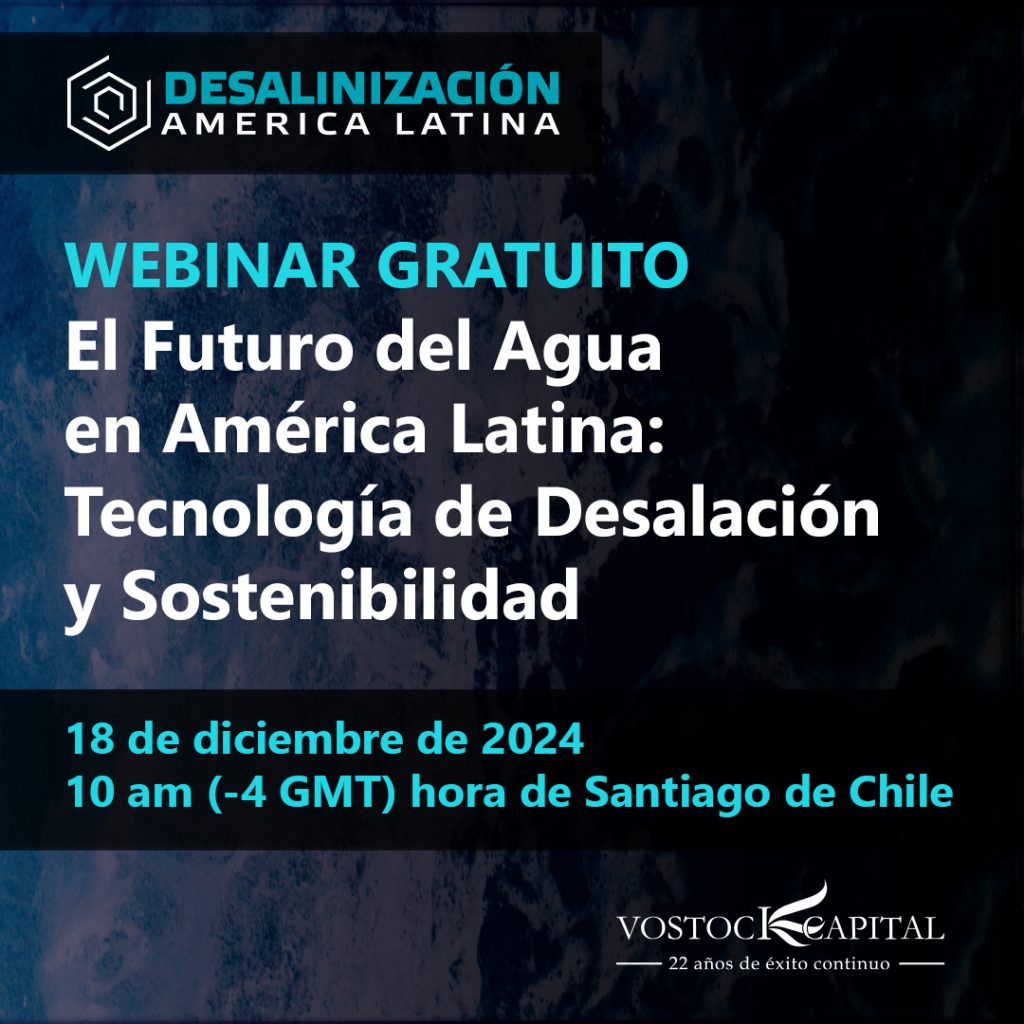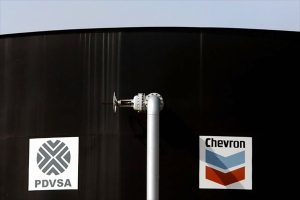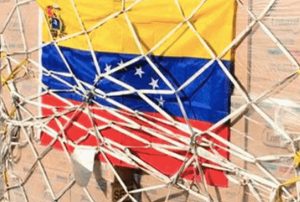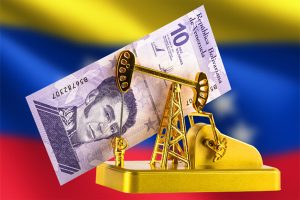Juan Guaidó’s coalition is hit by infighting, with disputes over his power and billions in opposition-controlled assets
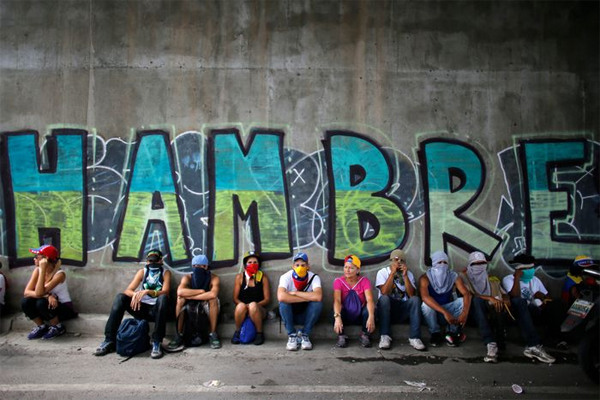
Photo:Ariana Cubillos/AP
By KejalVyas/WSJ
CARACAS
EnergiesNet.com 01 06 2022
In 2019, a coalition of Venezuelan political parties backed by the U.S. had grand ambitions to overthrow President Nicolás Maduro and cut off his financing by seizing some $20 billion in foreign assets from his regime and managing them on their own.
Mr. Maduro’s grip on power has since tightened. Efforts to restore democracy have stalled. And the political alliance headed by Juan Guaidó —whom Washington supports as Venezuela’s legitimate president—is fraying amid disputes over how much power he should wield and alleged mismanagement of the state-owned companies the opposition controls.
Lawmakers in an opposition-run National Assembly voted late Monday to place sharper limits on Mr. Guaidó in his role as the movement’s leader, including putting restrictions on the use of money from foreign assets and greatly reducing his diplomatic corps. Many figures in the opposition saw the moves as a sign of widening divisions in the opposition that will strengthen Mr. Maduro further.

The predicament is a challenge for the Biden administration, as Washington tries to figure out how best to support the opposition, according to people familiar with the matter. Washington has said it would still recognize Mr. Guaidó as Venezuela’s president, despite growing pressure from some U.S. businesses and creditors of Venezuela for the administration to re-engage with the Maduro regime and eventually ease economic sanctions, people familiar with the matter said.
In early January 2019, after Mr. Maduro’s re-election that the U.S. called a sham, the Trump administration and scores of countries withdrew recognition of Mr. Maduro and instead claimed Mr. Guaidó, at the time the head of the National Assembly, as the nation’s legitimate leader. The idea was that Mr. Guaidó had legitimacy as the representative of the last democratically elected body in the country.
The effort to back Mr. Guaidó always faced big limitations in a country where Mr. Maduro maintains control over virtually all levers of power, from the courts to the army. Though the opposition leader can give speeches and meet with supporters, he has no way of passing laws or running the security forces. Meanwhile, Mr. Maduro and his allies created their own parallel legislative bodies to pass laws, and ignored the National Assembly. Most of its leading members went into exile, and the body’s meetings are now held via Zoom.
Yet the opposition does have some real power, including control of overseas embassies and a range of assets abroad, including gold bullion at the Bank of England, Houston-based Citgo Petroleum Corp, and a large fertilizer producer in Colombia, Monómeros Colombo Venezolanos SA.
But what had started as a pro-democracy movement using street protests, critics say, has turned into an international bureaucracy of 1,600 workers with little popular support or accountability within Venezuela, even as they operate state-owned companies abroad valued in the billions of dollars.
Mr. Guaidó had approval ratings of about 15% in an October poll by the Caracas pollster, Datanalisis, about the same as Mr. Maduro. “It doesn’t necessarily mean that people think Guaidó is a bad guy,” said Datanalisis director Luis Vicente León. “It means that you didn’t achieve the goals that you promised and for which the people supported you.”
Data from an ad-hoc central bank board created by Mr. Guaidó show that his administration used $130 million from a so-called Fund for the Liberation of Venezuela since July 2020 to pay activists, opposition lawmakers and envoys.

Last month, senior opposition leader Julio Borges resigned from his post as the opposition’s top envoy and said the interim government should be dissolved. From exile in Colombia, Mr. Borges called the movement’s failure to topple Mr. Maduro an embarrassment and said the opposition was deviating from its goal of regime change by fighting over foreign assets. Bondholders and foreign companies want to seize Citgo as compensation for billions of unpaid debts owed by Mr. Maduro’s government.
Allegations of mismanagement by the opposition of the state-run fertilizer plant based in Colombia, Monómeros, which is flirting with bankruptcy, have further soured the mood.https://tpc.googlesyndication.com/safeframe/1-0-38/html/container.html
Meanwhile, support has waned for the opposition, both abroad and inside Venezuela. Of the nearly 60 countries that had recognized Mr. Guaidó as president in 2019, only the U.S. and a handful continue to do so.
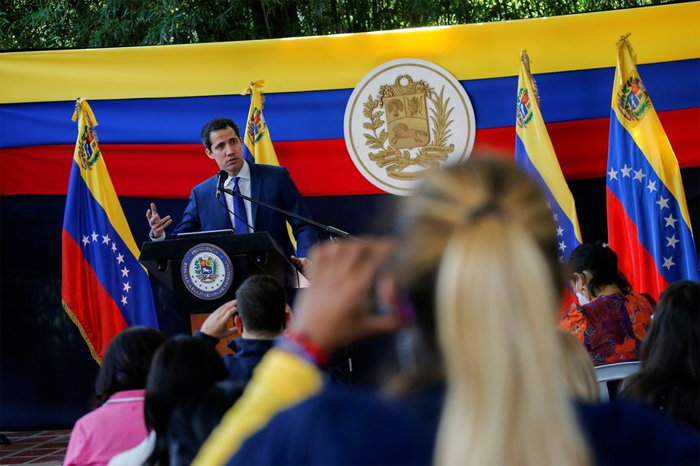
Photo:Leonardo Fernandez Viloria/Reuters
While many U.S. allies still deem Mr. Maduro’s rule as illegitimate, some countries have decided to work with the regime to facilitate trade and diplomacy. The European Union last year stopped calling Mr. Guaidó “interim president” and now considers him “a privileged interlocutor” for negotiations with the regime.
Financial creditors and U.S. businesses with interests in Venezuela have lobbied the Biden administration to eventually ease sanctions, people familiar with the matter said. Current U.S. policy has largely locked American oil businesses out of Venezuela and prohibited investors from negotiating over billions owed by the bankrupt regime.
Biden administration officials have heard discussions about whether foreign assets could be placed in trust, effectively taking Citgo out of Mr. Guaidó’s hands without exposing it to creditors, according to people familiar with the discussions.
José Ignacio Hernandez, a public-policy professor who designed much of Mr. Guaidó’s asset-protection strategy, argues that any changes to the U.S.’s recognition of Mr. Guaidó would allow the regime to reclaim rights to the assets. That is because Mr. Guaidó’s lawyers in recent years have painstakingly argued in U.S. and U.K. courts that they are the legitimate leaders.
“It would be like going back to zero, something that we cannot afford,” said Mr. Hernandez.
Venezuela is an unusual situation in international battles with creditors, with two different governments claiming legitimacy.
After the toppling of Saddam Hussein in 2003, the U.S. worked with the U.N. Security Council to place blanket bans on creditors filing claims against the American-backed transitional government. No such multilateral mechanism has been established for Venezuelan assets.
And while the U.S. has blocked international creditors from seizing Venezuelan assets, the U.S. Treasury has left open the possibility of granting such requests in the future if policy toward Venezuela were to change.
The opposition’s troubles and infighting have been on display over the Colombia-based fertilizers producer, Monómeros. Since 2019, the four main political parties that made up Mr. Guaidó’s coalition fought to name their own company board members, seeking to control lucrative procurement positions in the firm, current and former executives at Monómeros said. The arrangement, they said, brought political battles into the company boardroom, hampering its ability to function and hire personnel.
Mr. Guaidó denied wrongdoing in the management of Monómeros. He has called for an investigation into alleged graft and said he wants a wholesale restructuring of the estimated $500 million company.
In late October, a special five-member investigative commission hired by the National Assembly alleged in a 51-page report that Monómeros executives, some of whom had been appointed by Mr. Guaidó’s party, conspired with their main supplier, Connecticut-based chemicals company Nitron Group, to burden the fertilizer plant with unpayable debt and pave the way for Nitron to take it over in an arrangement that the report called “loan to own.”
“There are elements that permit us to reasonably believe that people who fulfilled managerial functions participated in a scheme for the hostile takeover of Monómeros,” the investigative committee’s report said.
Nitron didn’t respond to an email with detailed questions on the allegations.
Opposition activists called the alleged mishandling of Monómeros a stain on the Guaidó movement’s efforts to show its international supporters that it has the capacity to administer a sprawling bureaucracy.
“The opposition can’t even balance a checkbook, let alone govern a country,” said Juan Cruz, a former adviser to the Trump White House on Venezuela policy.
Mr. Guaidó said his government is committed to ensuring that the Venezuelan state doesn’t lose control of its overseas assets.
—Ginette Gonzalez and Andrew Scurria contributed to this article.
By KejalVyas from The Wall Street Journal -WSJ
wsj.com 01 04 2022



